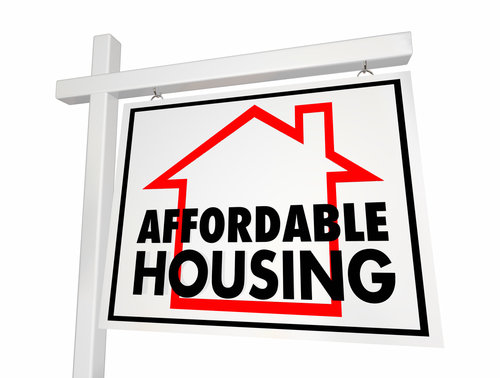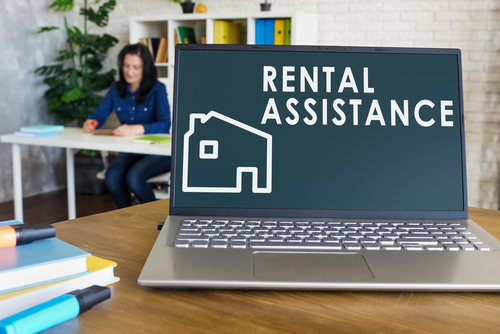
The Housing Choice Voucher Program provides reasonable accommodation to low-income families and individuals. However, many landlords aren’t very familiar with accepting housing choice voucher qualifications. So, if you are wondering about the requirements and qualifications for low-income housing in Northern VA, keep reading.
What is the Housing Choice Voucher Program?
The Housing Choice Voucher Program, formerly known as “Section 8”, gives vouchers to families who find their own place to rent. This program is federally funded and overseen by the United States Department of Housing and Urban Development.
To qualify, Housing Choice Voucher applicants must meet specific income criteria, submit to background checks, and follow all residential lease terms. If participants do not follow their requirements, they risk losing their housing choice voucher.
There are different types of vouchers depending on the applicant’s needs and qualifications. Let’s look at some of the various housing choice vouchers available for prospective renters today.
Types of Housing Choice Vouchers
Many landlords have heard of Section 8, but they may not know about the different types of housing choice vouchers available today. If you are unfamiliar with the wide variety of available vouchers, keep reading while we go over a few.

- Tenant-Based Vouchers- Tenant-based vouchers allow low-income individuals and families to rent decent, affordable, privately-owned housing.
- Tenant Protection Vouchers- Tenant protection vouchers protect HUD-assisted families from hardship.
- Family Unification Program Vouchers- When the lack of housing is a factor in families separating, family unification vouchers help families rent affordable housing.
- Homeownership Vouchers- Homeownership vouchers help low-income families purchase homes.
- Vouchers for Persons with Disabilities- Vouchers for persons with disabilities help families with disabilities and low-income to rent affordable, privately-owned housing.
- Mainstream Vouchers- Mainstream vouchers assist non-elderly people with disabilities.
- Project-Based Vouchers- Project-based vouchers encourage investors to construct, renovate, or make existing housing available to families in need.
- Witness Relocation Vouchers- Witness relocation vouchers provide relocation and financial assistance to witnesses in combating violent crimes.
How Does a Housing Voucher Applicant Qualify?
For an applicant to qualify for a housing voucher, they must meet the requirements determined by their local Public Housing Agencies (PHAs). Housing vouchers are locally administered and funded by the U.S. Department of Housing and Urban Development.
That said, eligibility is determined by the PHA based on total annual gross income, household size and is limited to citizens of the U.S. However, there are some instances where non-citizens may be accepted if they have eligible immigration status.
For the most part, a family’s income should not exceed 50 percent of the median income for the county in which the family lives. According to law, PHA must provide 75 percent of the voucher to applicants whose revenues don’t exceed 30 percent of the median income.
That said, families who secure rental units are responsible for paying security deposits, application fees, and any moving expenses on their own. Now, let’s go over what types of homes qualify for low-income housing in Northern VA.
How to Calculate Income for a Housing Voucher Qualifications
To qualify for a housing voucher, you must meet the minimum income standards. As stated above, the families who apply for housing assistance should not have an income that exceeds 50 percent of the median income for the county they choose to live. That said, here are the main criteria that the Housing Choice Voucher Program looks for when reviewing an applicant’s income:
- Fair Market Rent Price
- Payment Standards
- Tenant’s Paid Portion
- Included Utilities
Fair Market Rent Price
The first step to determine the voucher amount is calculating the Fair Market Rent Price for the area. That said, the HUD calculates this number for thousands of counties across the United States. So, to estimate the Fair Market Price, HUD evaluates all the units that have been rented in the past 15 months. However, this excludes units less than two years old, assisted living housing, and units rented below-market rent.
The Fair Market Price for rental properties is set at the 40th percentile for rent payments in the local area. That said, 40 percent of homes are rented for less than this price, and 60 percent of units are rented for more. Prices are set in the 40th percentile so that landlords are willing to participate and low-income tenants can afford their rent each month.
Payment Standards
Once the Fair Market Price is determined, each local Public Housing Authority uses it as a guide to calculate the maximum amount they are willing to pay for each number of bedrooms. During this process, the PHA looks at specific factors, such as:
- How long did it take for the family to locate appropriate housing?
- How many bedrooms are in the home?
- What is the Fair Market Rent in the area?
These few factors determine how much landlords are paid for providing housing assistance. However, keep in mind that the payment standard will most likely be between 90 and 110 percent of the Fair Market rent value.
Tenant’s Paid Portion
When tenants receive a housing choice voucher, they must pay rent each month. That said, the rent that tenants pay must be 30 percent of their adjusted monthly income, 10 percent of their monthly gross income, welfare rent amount, or the minimum rent price set by local PHAs.
The amount that the tenant pays goes directly to the landlord. That said, if you are a landlord and have a rental unit with a monthly rent price that’s above the Fair Market price, tenants can opt to pay more to live there, as long as the PHA approves it and the rent does not go above 40 percent of their adjusted monthly income.
Included Utilities
While sometimes utilities are included in the rent payment, other times they are paid separately. The PHA will typically include utilities in the monthly price while providing the housing voucher if they are included in the monthly cost. If tenants must pay utilities separately, the PHA may give an allowance for utilities. Otherwise, they may reimburse the tenant or the utility company.

What Types of Homes Qualify for Low-Income Housing?
Most homes qualify as reasonable living accommodations per Housing Quality Standards. Any rental home, single-family home, apartment, or mobile home qualifies as long as it is decent, safe, and sanitary.
Individuals or families with housing vouchers tend to be highly-motivated individuals, pay rent promptly each month, and treat the property respectfully.
Responsibilities for Landlords and Tenants
For applicants to obtain low-income housing in Northern VA, they must meet the income qualifications and comply with responsibilities. Most prospective tenants are families with extremely low income, individuals with disabilities, or senior citizens.
That said, both landlords and applicants that qualify for housing assistance must keep up with a list of responsibilities. Read on as we go over tenant and landlord expectations for housing assistance.
What are Landlord Responsibilities?
While working with housing voucher applicants in Virginia, landlords are responsible for doing the following.
- Providing tenants with a safe and clean living environment
- Complying with all landlord responsibilities listed in the lease agreement
- Maintaining repairs within the rental property per HUD’s Housing Quality Standards
- Complying with Housing Assitance Payment terms
- Setting up a property inspection with a local housing agency
- Fixing issues found in the inspection report promptly
What are Tenant Responsibilities?
While landlords are responsible for holding up their end of the deal, tenants are also. Here are some tenant responsibilities for low-income housing in Northern VA.
- Provide only honest and verifiable information on all essential documents
- One household applicant must be a citizen of the United States or otherwise have eligible immigration status
- Do not engage in any illegal or violent activities
- Follow all rules and expectations listed in the lease agreement
- Report any changes to household size and income per program rules
- Re-certify for housing assistance annually and allow the housing authority to conduct inspections as necessary
Can Landlords Refuse to Rent to Housing Voucher Applicants?
Landlords may refuse applications that do not meet their rental standards and qualifications. That said, all the qualifications must comply with all the local, state, and federal Fair Housing Laws.
However, landlords with more than four rental units may not refuse to rent solely based on the use of a housing voucher. Similarly, according to Fair House Laws, property owners may not discriminate against anyone based on the following circumstances:
- Race
- Color
- Religion
- National Origin
- Sex
- Gender Identity
- Sexual Orientation
- Disability
- Age or Elderliness
- Familial Status
- Veteran Status
- Income Source
If landlords discriminate against tenants based on any of the reasons above, they will likely face legal and financial battles as a result. So now, let’s go over why it’s so crucial for rental owners to comply with Fair House Laws.
Fair Housing & Housing Voucher Qualifications
Most landlords know that Fair Housing Laws are crucial to know and understand while owning a rental. After all, no landlord wants to run into legal or financial trouble. That said, regardless of whether a property owner accepts housing vouchers or not, all landlords must comply with Fair Housing Laws.
In the United States, it’s illegal to discriminate based on race, color, sex, familial status, disability, or national origin, since these classes are protected. With that, other protected classes in other local jurisdictions may include:
- Marital status
- Gender identity
- Source of income
In all communication, interactions, and advertising, landlords need to be aware of Fair Housing Laws. In addition, rental homeowners should act professionally and treat all applicants with respect during interactions. Overall, landlords should hold all applicants to the same standards to avoid discrimination claims.
Tips for Fair Housing Compliance
Although it’s the responsibility of landlords to keep up and comply with Fair Housing Laws, mistakes can happen. So let’s define some ways to avoid any claims in the future.
- Remain Consistent
- Avoid Steering Applicants Away
- Do Not Discriminate
Remain Consistent
Regardless of whether there are housing voucher applicants or not, landlords should maintain a consistent standard for evaluating and responding to tenants. Making it difficult for voucher applicants to qualify for housing is against the law. So, it’s best for property owners to treat all rental applicants the same to avoid discrimination claims.
Avoid Steering Applicants
“Steering” refers to when landlords attempt to restrict particular applicants’ housing options by leading them to specific properties or areas of the community. Landlords should offer any available units to all qualifying applicants without bias. Otherwise, it’s discrimination.
Keep Standard Qualifications
Landlords should keep in mind that they cannot deny housing applicants based on a housing voucher. However, they may reject them for other reasons, such as adverse rental history, a criminal background, or substandard payment history.
Best Practices for Renting to Housing Voucher Applicants
For landlords, it can be overwhelming to navigate all the requirements such as paperwork, inspections, and keeping up with Fair Housing Laws. Renting to housing voucher applicants can take a lot of time and patience. Luckily, your local rental property management group can help manage your rental’s paperwork, communication, and daily operations.
Bay Property Management Group has qualified professionals ready to help you manage your rental business. So, whether you want to learn more about the housing voucher process or need help with your Northern Virginia rental management, contact us today. We offer rental management services in Maryland, Pennsylvania, Northern Virginia, and Washington DC.

